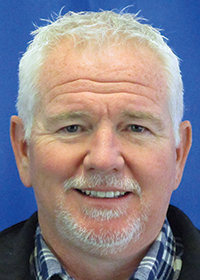Northwest Arkansas’ arts and entertainment industry sees post-COVID growth
by December 15, 2021 2:02 pm 814 views

The cast of TheatreSquared's "A Christmas Carol" on stage at the Fayetteville Public Library. Its playing through Dec. 26.
As the arts and entertainment industry emerges from the COVID-19 pandemic, it has changed and begun to recover.
Audiences have returned to venues, and area executives expect to build on in-person attendance growth. Still, some challenges remain, including filling empty seats and job openings.
“It [the industry] seems to be robustly recovering from the pandemic,” said Brian Crowne, vice president of the Walmart AMP. “The delta surge slowed things down, but vaccines and boosters have helped raise confidence in the industry from the touring standpoint.”
Nick Zazal, general manager of the Walmart AMP, said a labor shortage has the most significant impact on the AMP for a full recovery. He added that the hospitality and supply chain industries are being affected disproportionately by the shortage.
Jennifer Wilson, public relations director for the Walton Arts Center and Walmart AMP, noted that the demand for concerts came almost as soon as they were announced. She added that things started to return to normal for the AMP after the first two shows.
Ticket revenue this year exceeded 2019 levels even with fewer concerts and the number of tickets sold. The revenue rose 7.8% to $8.3 million in 2021, from $7.7 million in 2019. The AMP hosted 27 concerts in its Cox Concert Series this year, compared to 31 in 2019. It had no touring shows in 2020.

Asked how the AMP made it without the revenue last year, Crowne said, “with a lot of blood, sweat and tears and hoping and praying, and the generosity of our community and strong leadership.”
Zazal said other assistance included government support, such as the Paycheck Protection Program and Shuttered Venue Operators Grant. Another program that helped both the AMP and the Walton Arts Center, which owns the AMP, was the Ghost Light Recovery Fund.
“We, just like everybody else, did have to lay off some people, furlough some people, but it could have been significantly worse without the support we got from the community during that time,” Zazal said. “We were lucky.”
Wilson said more than 1,000 businesses or households donated about $1.2 million to the Ghost Light Recovery Fund. The Walton Arts Center launched the fund in summer 2020 when the organization realized it would not host its programming as typically presented. The fund allowed the organization to keep the majority of its full-time staff employed, remain engaged with the community and maintain its facilities.
“What we did over the last year is figure out a completely new platform and ways to present programming,” Wilson said. “None of that programming made money. We did it for the community and as a way to give back to the community.”

This year, the AMP hosted about 35 events, including the 27 concerts from July to October. This season, some of its seven sellout shows included Alanis Morissette, Machine Gun Kelly, Phish and Jonas Brothers.
Wilson said the AMP is constantly announcing new and rescheduled shows. Next year, Jimmy Buffett is set to play at the AMP on June 9. Others include
Backstreet Boys on June 17, Matchbox Twenty on June 24 and Morgan Wallen on Aug. 26. Crowne said he expects at least 35 concerts next year.
Asked when the AMP will get back to a pre-pandemic level of concerts and attendance, Zazal said, “we’re there… We’re going to see a very full 2022 season.”
Crowne said that during the pandemic, people learned that the industry is an important part of their health and wellness, especially mental health.
“This season showed that people were ready and coming out and that they want it,” he added. “My outlook is one of extreme optimism for 2022 that it will be even more robust than this year.”
COVID IMPACT
Martin Miller, executive director of Fayetteville-based TheatreSquared, said the industry is emerging from the pandemic as something different — not necessarily returning to what it was pre-pandemic.

He expects COIVD to impact the industry for a decade, and some impacts are positive, including the work to build an inclusive culture and equity within companies and communities. But, he said one of the biggest challenges the industry faces is telling people who’ve gotten out of the habit of making in-person entertainment a part of their lives that it’s time to come back.
“Not saying cancel your Netflix membership, but maybe it’s time to come back to a play,” he added. “We’ve had good attendance over the last few months, but I look at an empty seat as an opportunity. And I’d love for more people to come back.”
At the onset of the pandemic, the nonprofit was in the inaugural season for its new 50,000-square-foot venue. TheatreSquared ceased in-person performances but hosted five plays via Zoom before digitally-streaming six full productions, said Miller, noting that it had viewers from all 50 states and 19 countries.
“We had an audience with us throughout the pandemic,” Miller explained. “We just didn’t have them in-person until April of 2021. We estimate that more than 50,000 people saw TheatreSquared’s work during the months that we were unable to gather audiences at the theater. That was pretty amazing.”
This programming led to nationwide attention and provided the venue with ticket revenue. The nonprofit also received aid from government programs, people and organizations. And, he said, it retained its staff without any layoffs or furloughs.
He noted that the nonprofit has received more national attention than it previously has had because of the lack of performances nationwide. That included “Critic’s Pick from The New York Times,” he said. “We were on their Best of 2020 list, which has just 10 plays in it. Had an amazing review in the Wall Street Journal. It felt as though all of the sudden we were all on one playing field, instead of in a bubble in the middle of the country.”
In-person attendance started to gain momentum in May and June but took a hit in July and August as COVID cases surged due to the delta variant, Miller said. However, when cases started to fall again and vaccinations increased, attendance improved. He added that the June production of “Matilda: the Musical” had the highest attendance of any of its productions.
REVENUE RISES
Ticket sales and revenue for the 2021-22 season have already exceeded the 2019-20 season. Ticket sales and revenue have risen from 31,000 and nearly $850,000, respectively, in the 2019-20 season, to 38,000 and almost $1 million for the 2021-22 season. TheatreSquared’s fiscal year ends June 30.
“We are absolutely moving ahead,” he said. “We’ve already gone further in this new season than we did in the one that was interrupted by the pandemic.
“For TheatreSquared, it’s not just about trying to get back to where we were,” he added. “We want to get back to where we could be. I’d like to see our region’s theater continuing to grow and become widely acknowledged as a national force.”
The nonprofit will host “A Christmas Carol” at Event Center, a new 750-seat venue at Fayetteville Public Library in December. TheatreSquared also hosted “Matilda” there.
TheatreSquared is set to host six productions through the end of the season in July, including “Tiger Style!,” “Miss You Like Hell” and “The Elaborate Entrance of Chad Deity.” Miller said West Theatre will be transformed into a wrestling arena for the latter production.
Planning is underway for the 2022-23 season. Joanna Bell, director of marketing and communications, said it would be announced in March.
GUESTS RETURN
Crystal Bridges Museum of American Art and the Momentary, a contemporary art space and satellite of the Bentonville museum, expect guest numbers in 2022 to return to pre-pandemic levels as visitation this year has exceeded 2020 levels.
Rod Bigelow, executive director and chief diversity and inclusion officer, said audience numbers started to rise substantially by mid-2021.

Between January and October, the number of guests at Crystal Bridges increased by 21% to 331,763, from 274,153 in the same period in 2020. Over the same period, the Momentary numbers rose by nearly 62% to 119,201, from 73,658. The latter venue opened in mid-February 2020, a few weeks before it and Crystal Bridges temporarily closed at the onset of the pandemic.
Compared to the same period in 2019, the numbers for Crystal Bridges were down 37% from 529,706. They were down 48% from the same period in 2020.
“When we closed our buildings due to COVID, our first question was, ‘How can we help our community?’” Bigelow said. “In addition, we quickly expanded our virtual offerings to ensure audiences had easy access to art, music, talks and more as a respite.
“Both Crystal Bridges and Momentary benefit from having outdoor space that includes art installations, music, performances and community programming where some have felt more comfortable participating. When we felt we could safely reopen, we did so and found that many members of our community were eager to re-engage in a safe way.”
Bigelow said the venues are offering activities and programming that are more robust than pre-pandemic.
“I have a very positive outlook for the arts industry, as we’ve seen how impactful the arts are in building community, connectedness and simply feeding our souls,” he said. “In our experience, visitors are thankful for and ready to engage with the arts in ways that promote individual and community-wide wellbeing. Artists embrace the possibilities and provide new avenues of discovery for us all.”
Next year, Crystal Bridges will present exhibitions “The Dirty South: Contemporary Art, Material Culture and the Sonic Impulse,” “Architecture at Home” and “Fashioning America: Grit to Glamour.” They begin March 12, May 7 and Sept. 10, respectively.
Meanwhile, guests of the Momentary can expect an increase in music events and festivals, including the return of the free summer concert series. The venue will showcase contemporary emerging artists and spotlight area and national innovators of food. Existing and planned programming includes the wellness program Sunday Reset series and the Tastemakers series, which features a variety of gustatory experiences. Other highlights include the exhibition “In Some Form or Fashion,” on view through March 27, and the Live in America Festival set for June 1-12.
General admission is free for Crystal Bridges and the Momentary.
